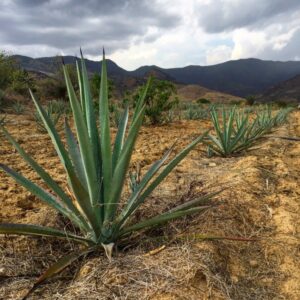
On December 19th, 2008, twenty-seven-year-old Tim DeChristopher snuck into a Bureau of Land Management (BLM) auction for oil and gas leases and outbid developers for drilling rights on more than 22,000 acres of pristine public lands in southern Utah. By repeatedly raising his bidder’s paddle, DeChristopher won $1.7 million worth of leases, an amount he had neither the means nor the intention of paying. His goal was not to drill on the land — located between Arches and Canyonlands national parks — but to protect it. While DeChristopher’s bidding was clearly fraudulent, an important question remains: who should be able to bid for federal land leases in the first place?
Under current federal leasing rules, leases cannot be held by environmental groups for non-consumptive use. Even if they are the highest bidders, rules require that leaseholders must develop their parcels, precluding such groups from holding them for habitat protection or recreational use. In 1996, an environmental group that submitted the highest bid for a 275-acre timber allotment in Okanogan National Forest in Washington was disqualified because the group did not plan to cut any trees. Politically powerful ranching, timber, and oil interests have kept the bidding process free of competition from environmental groups, thereby keeping leases at below-market levels.
Left out of the commodity leasing and sale options, environmentalists have turned not only to “monkey-wrenching,” but to the political system as a means to set aside land for preservation. This method has largely been successful for environmental groups, who spend millions each year lobbying the government to set aside land into the public domain. Since 1960, over 35 million acres have been added to the federal estate, which is the equivalent of adding an area greater than the size of Rhode Island each year. However, the political allocation of protected lands is made with little regard to the opportunities foregone of alternative uses of the land. By contrast, in a truly competitive bidding process, where environmental groups can bid alongside the oil and gas industry, the winners must face the tradeoffs associated with drilling or preserving the land.
When news got out about DeChristopher’s “purchase,” environmental groups and individual supporters came to his aid, offering him financial assistance to pay for the leases. In less than a month, DeChristopher raised more than $100,000 in donations — enough to cover the initial down payment on the leases. Despite the BLM’s refusal to accept the money, donations have continued to accumulate for his legal defense fund. With such a large amount raised over such a short amount of time, this refutes the notion that environmental groups cannot collectively compete in the bidding process. If such groups were allowed to participate in federal lease auctions, public lands with high environmental value could be protected. Their participation could lower transaction costs and elicit cooperation between environmentalists and oil companies – groups that are perpetually at odds with one another.
Some states have experimented with allowing environmental groups to bid on state land leases. In 1996, the Forest Guardians outbid a rancher for 644 acres of damaged riparian habitat in New Mexico. The area is now held for nongrazing use, which has restored the watershed’s sensitive ecosystem. Since then, Arizona and Montana have begun to allow private owners and nonprofit groups to bid on state grazing allotments for alternative uses such as nature or recreational leases and other forms of joint land management. In 1999, a coalition of environmental groups and private individuals bought the right not to harvest timber on 25,000 acres of Loomis State Forest in Washington. A remarkable $16.5 million was raised in just one year by more than 5,000 people to protect the forest in the equivalent of a conservation easement, which will remain entirely roadless and serve as important habitat for grizzly bears, fishers, and the Canadian lynx.
A recent state-level case illustrates the potential for changes in federal lease auctions. In February, Idaho amended its rules to allow conservation groups to lease state trust lands following a ruling by a federal district court. Gordon Younger, a local environmentalist, was the highest bidder in a 2006 auction for seven grazing leases. Younger planned to manage the land to restore “their degraded streams and wildlife habitats.” The Idaho Board of Land had awarded the leases to livestock owners instead. Under the new rules, ranchers — who often pay as little as $250 annually to graze on a 400-acre parcel — will no longer be able to obtain below-market leases in no-competition bids. Participation by environmental groups is expected to bring in an additional $4,000 to $5,000 per 10-year permit, which is much-needed in a state that repeatedly loses money on its grazing lands.
By inviting private owners and nonprofit groups into the bidding process, competition could promote cooperation between environmentalists and the oil industry. Such cooperation between these two groups already flourishes in lands that are owned privately because property rights require landowners to carefully consider the tradeoffs associated with alternative uses of their land. Consider the Audubon Society’s Paul J. Rainey Preserve in Louisiana, which is home to both a wildlife refuge and thirteen natural gas wells. For nearly fifty years, an oil company operated inside the preserve under strict environmental standards put in place by the Audubon Society, such as no pumping during the nesting season so as not to disrupt bird habitat. Whereas on public lands, the Audubon Society has opposed oil and gas development, private ownership has fostered a cooperative, mutually-beneficial agreement. By allowing drilling, the Audubon Society has earned over $25 million with which it has purchased even more land to preserve.
Although federal land leases do not amount to full ownership of the land, certain changes to the federal leasing process could provide leaseholders with similar incentives as private land owners. Open auctions where all interested parties — nonprofit groups, private individuals, oil and gas developers, and others — are allowed to bid will result in land going to its highest-valued use. As is the case in some state auctions, groups could lease land exclusively for recreation, wildlife habitat, or ecosystem rehabilitation, prohibiting any consumptive activities from taking place. In areas with high commodity value, subleasing arrangements could provide an alternative to the all-or-nothing political outcomes that currently characterize federal land management. An environmental group could obtain nature or recreational leases on federal lands and, through a sublet arrangement, allow carefully-supervised commodity production. Much like the environmentally-conscious drilling in the Rainey Preserve, this could lead to cooperation between environmentalist and oil companies and generate additional revenues for the leaseholder.
Unfortunately, no such cooperation between the oil industry and environmentalists was found in the political distribution of leases that took place last winter. The Obama administration ultimately canceled the auction’s sales upon taking office months later, but Tim DeChristopher still faces two felony charges for fraudulent bidding. However, underlying the story of DeChristopher’s fight for the preservation of thousands of acres in southern Utah is the potential for environmental groups to bid alongside the oil and gas industry to determine the highest-valued use of the land. “There are enough of us who value the land and value the climate. We should protect this land,” DeChristopher said. “That’s the only way we can get the true market value for these leases — if all the people who value the land are involved in the auction.”
There remains hope that the successful experimentation with open lease auctions in various states will lead to similar changes at the federal level. While private ownership of these public lands would force owners to bear the opportunity costs of alternative uses of the land and elicit cooperation, simple changes to federal lease auction rules can result in similar benefits. Auctions in which all interested parties — including environmentalists — can participate and hold leases for non-consumptive use is a sensible and politically-feasible alternative to the monkey-wrenching and politicized land management that characterizes the saga of Tim DeChristopher.



